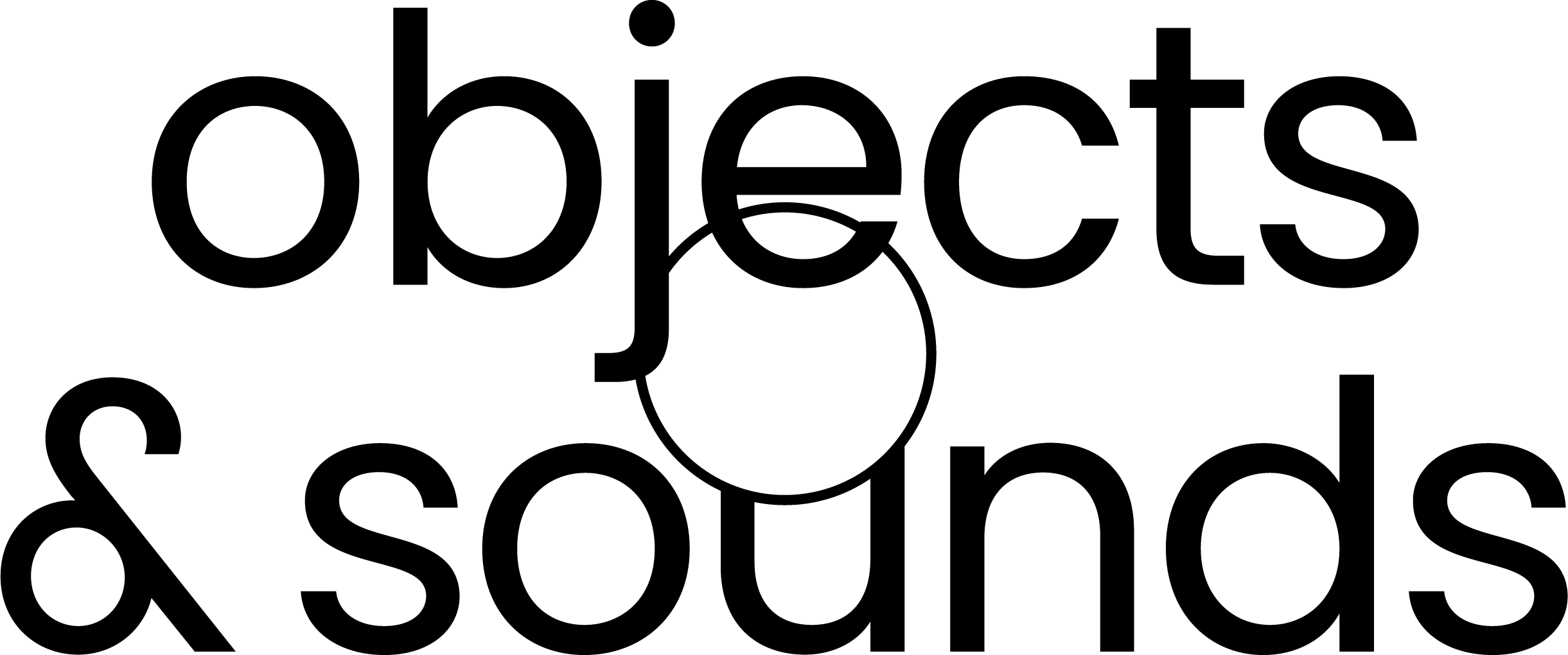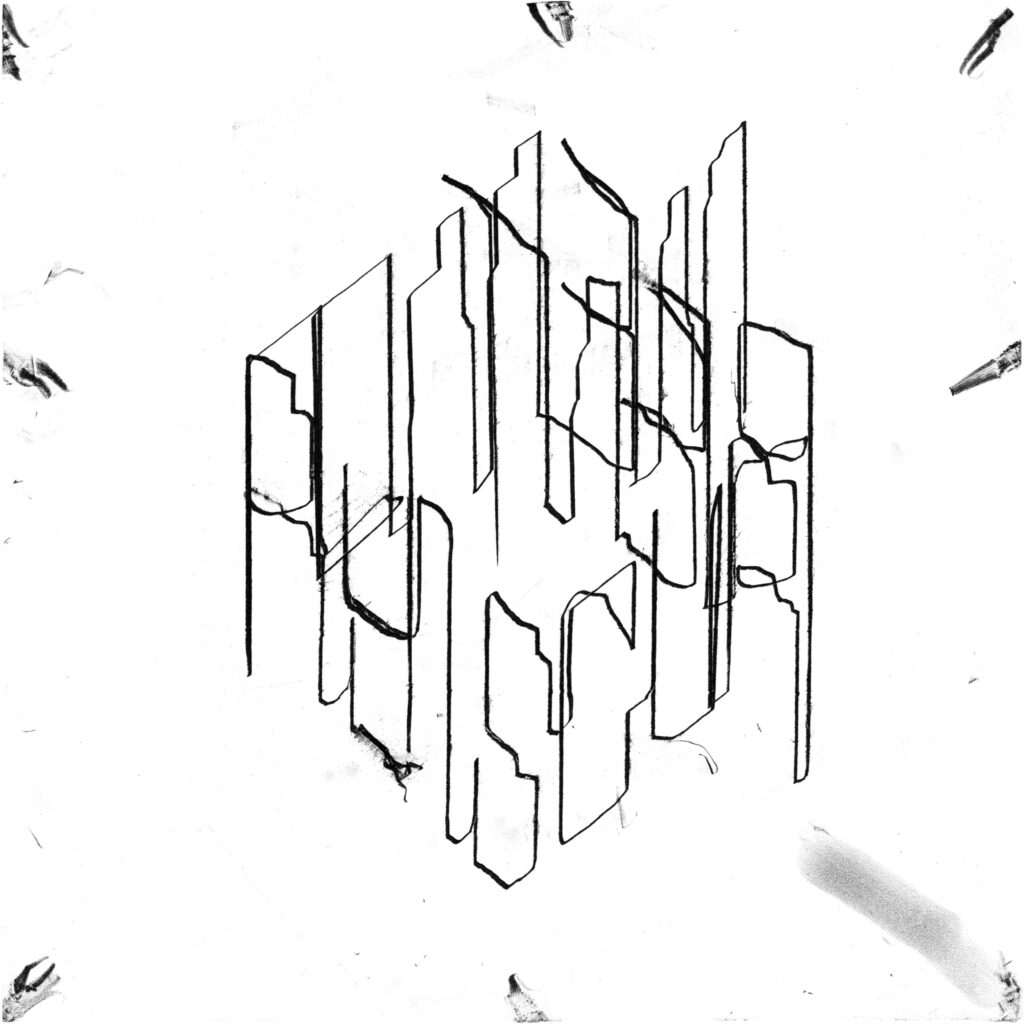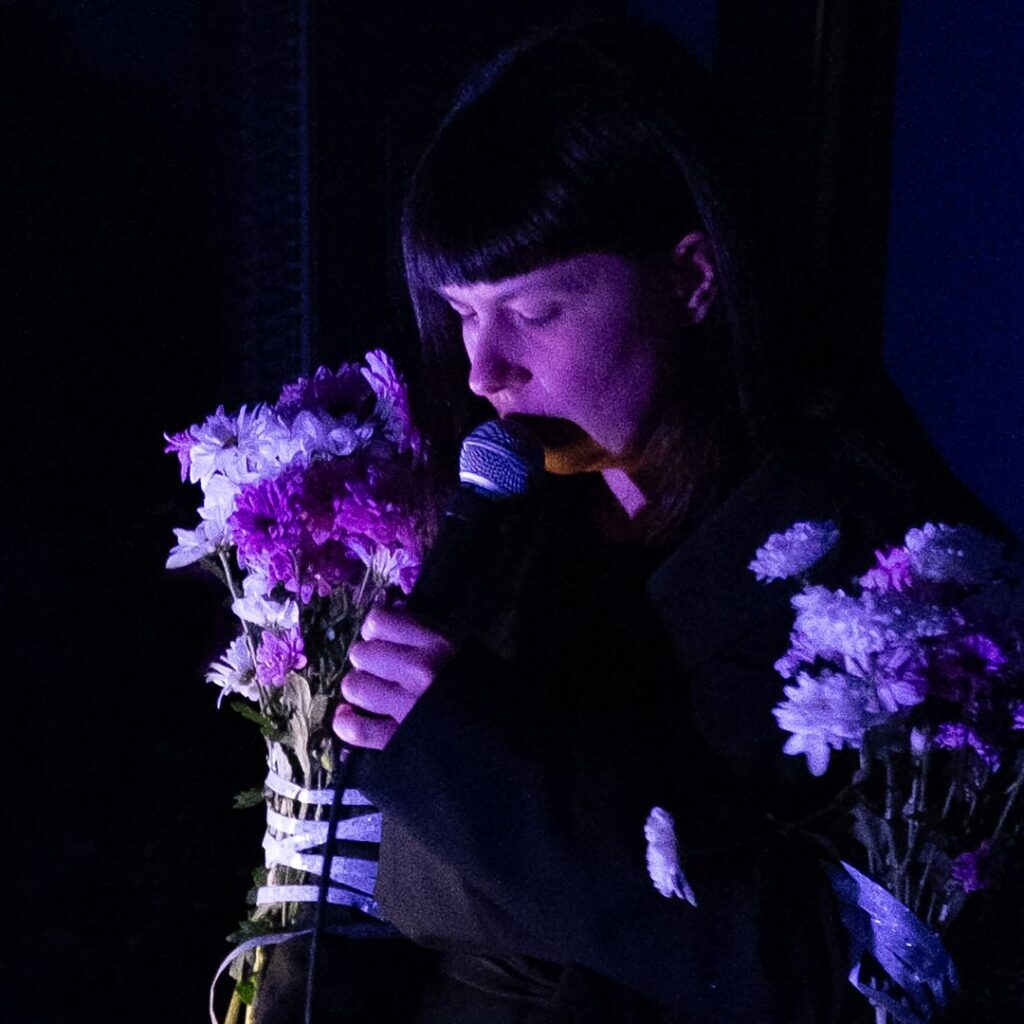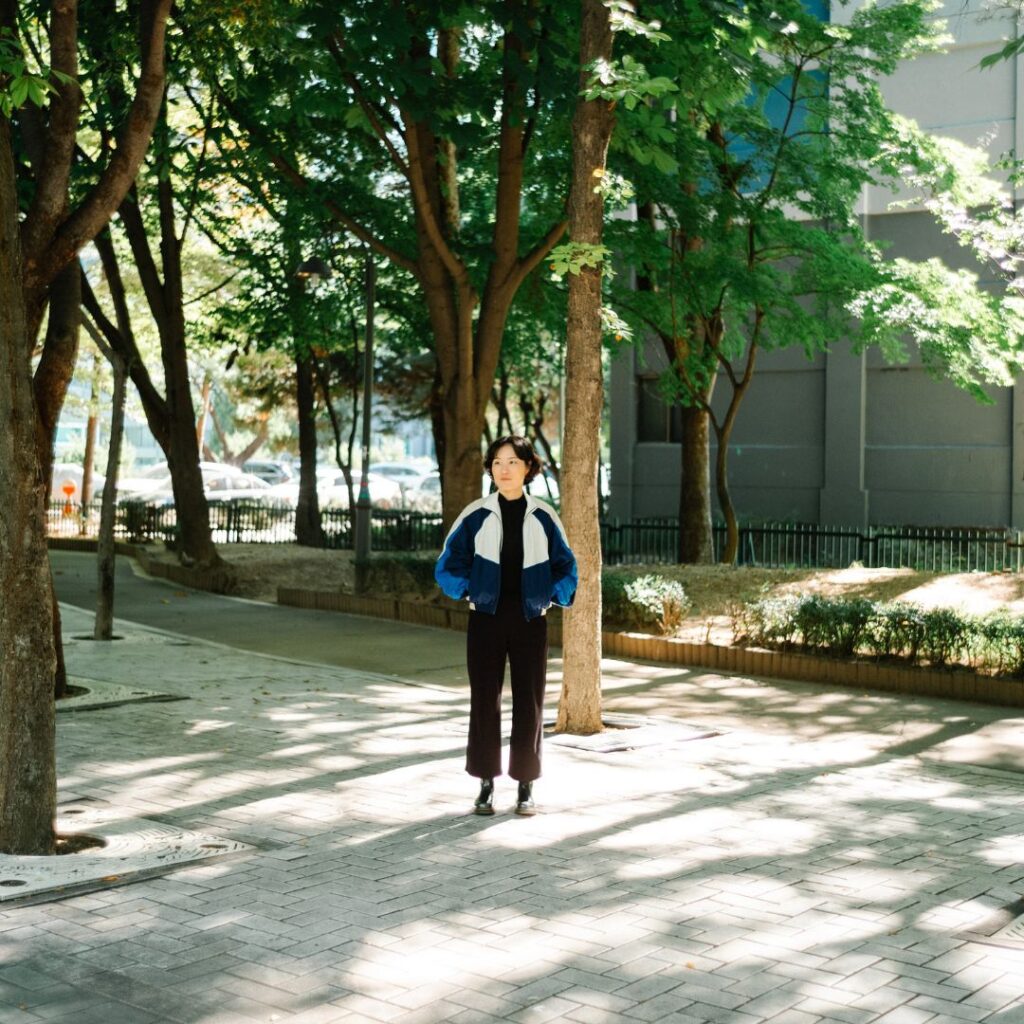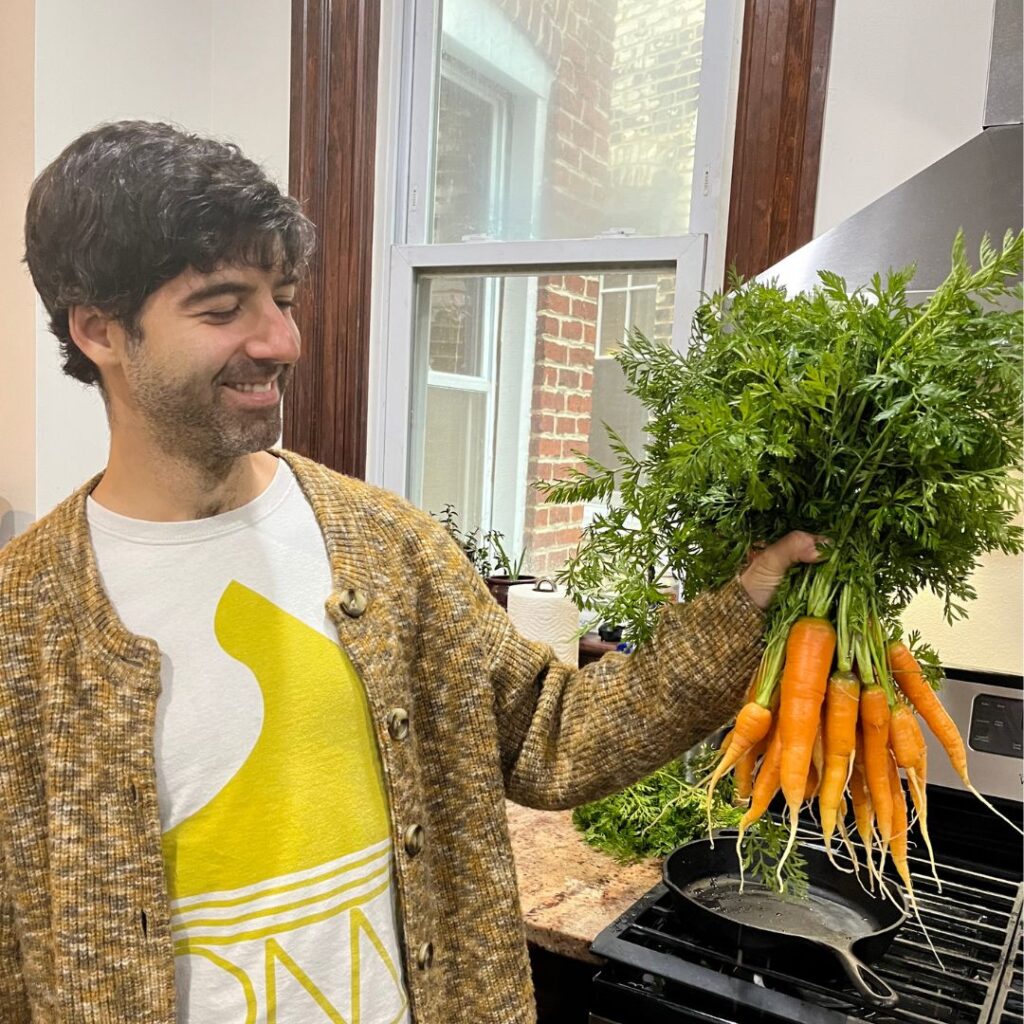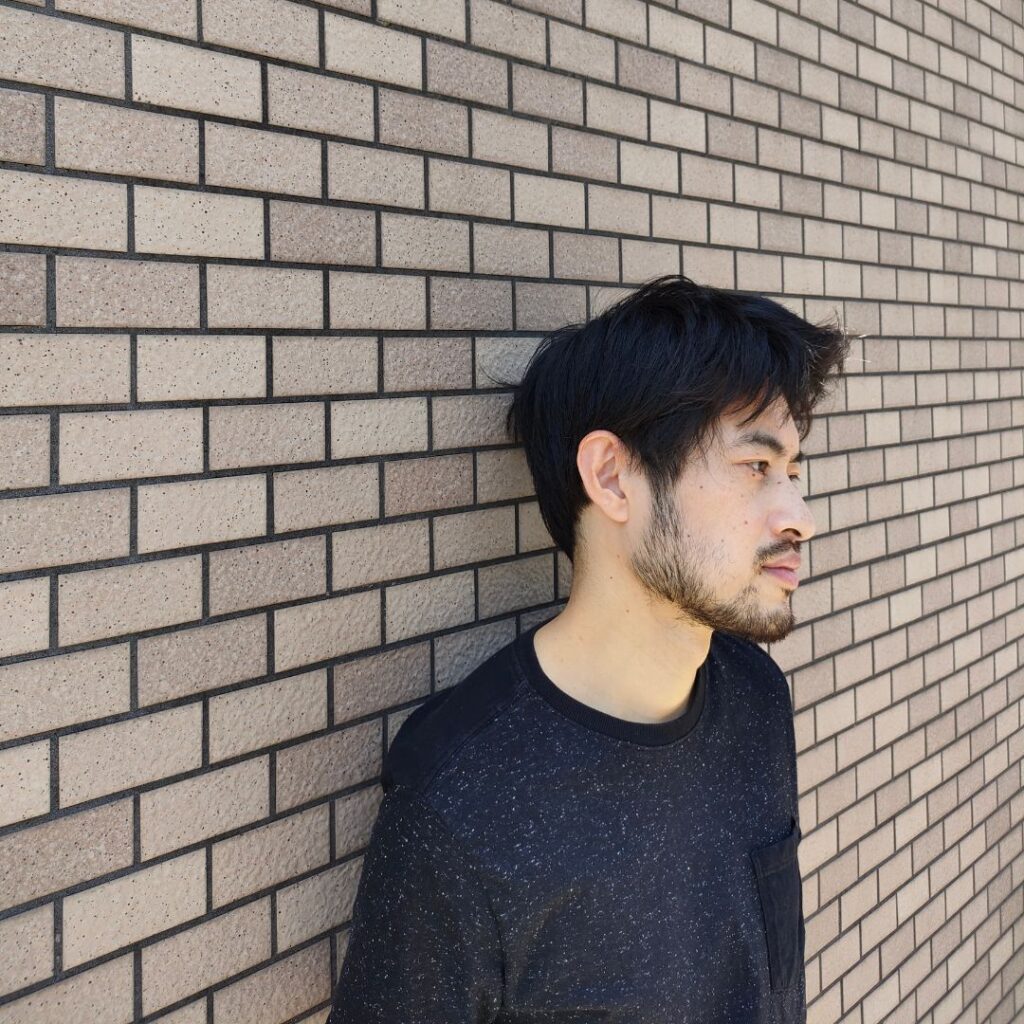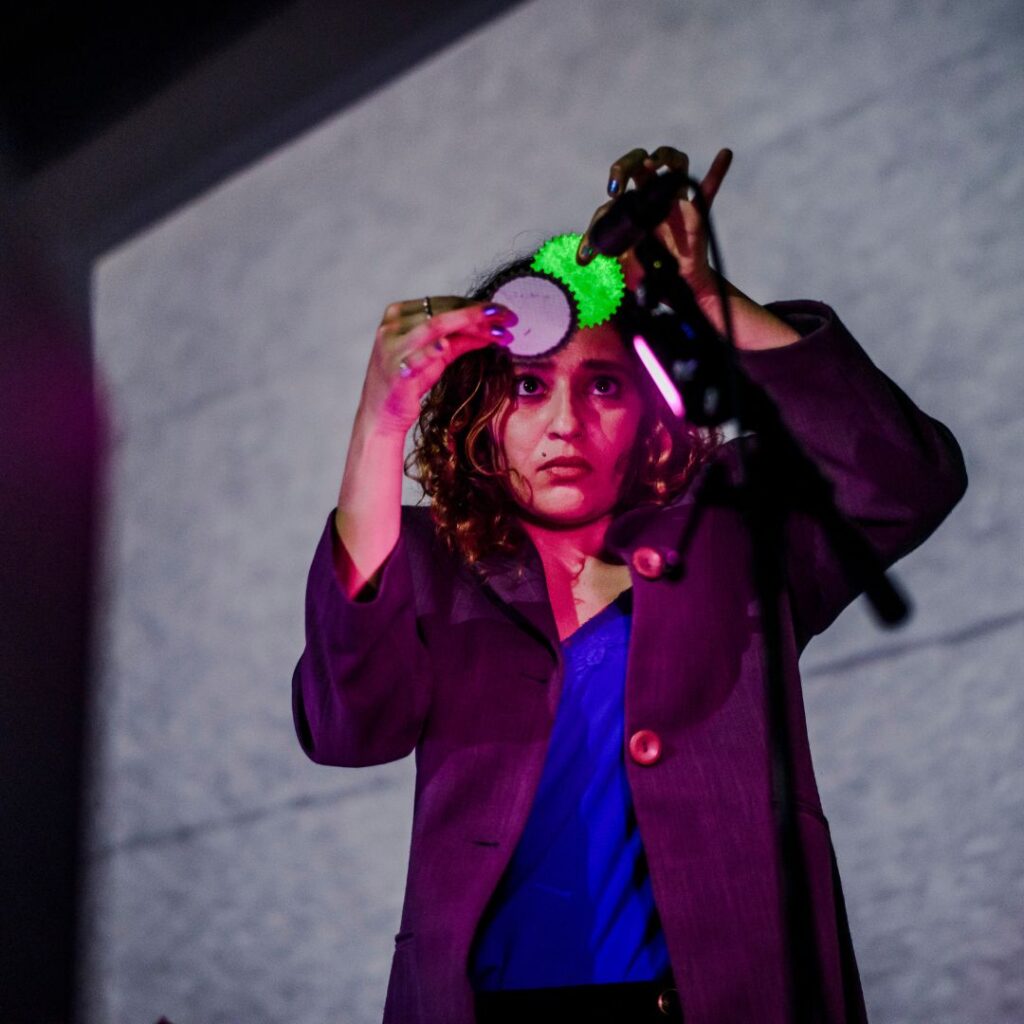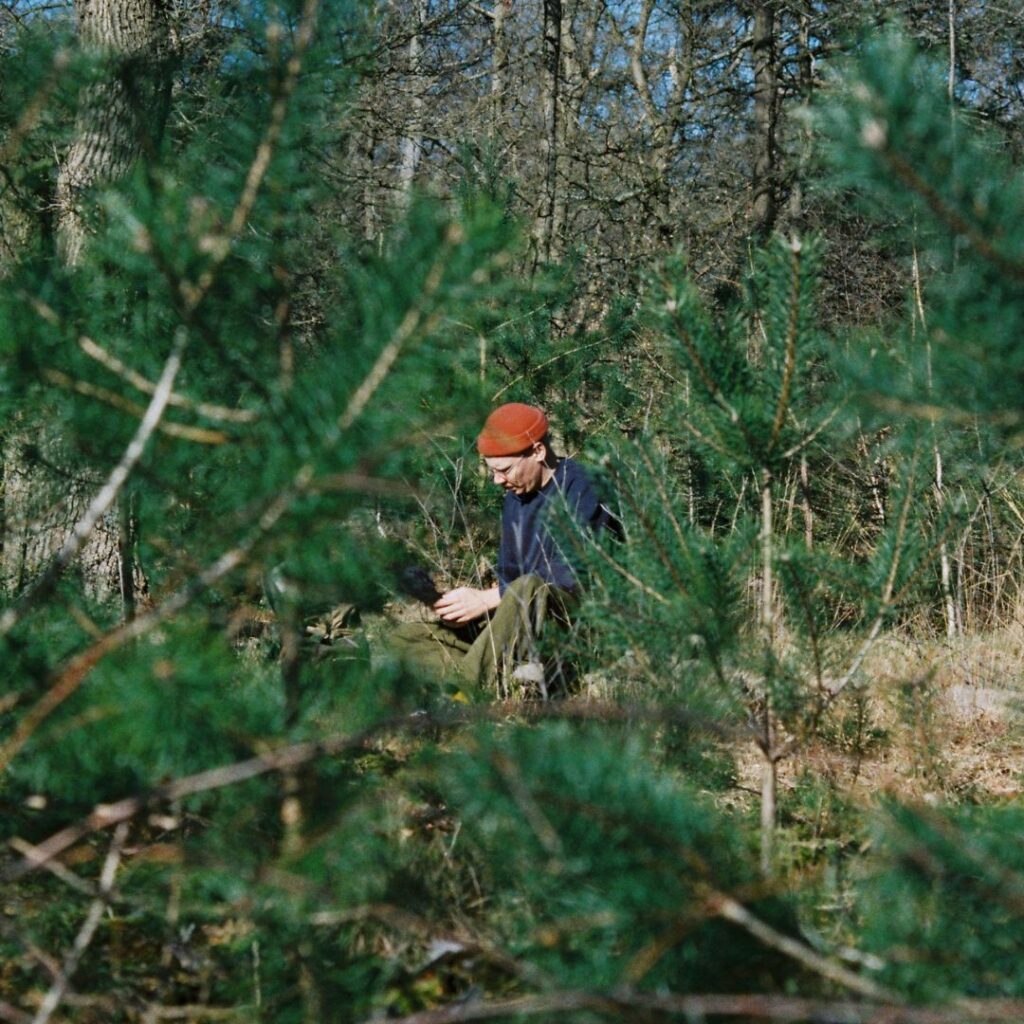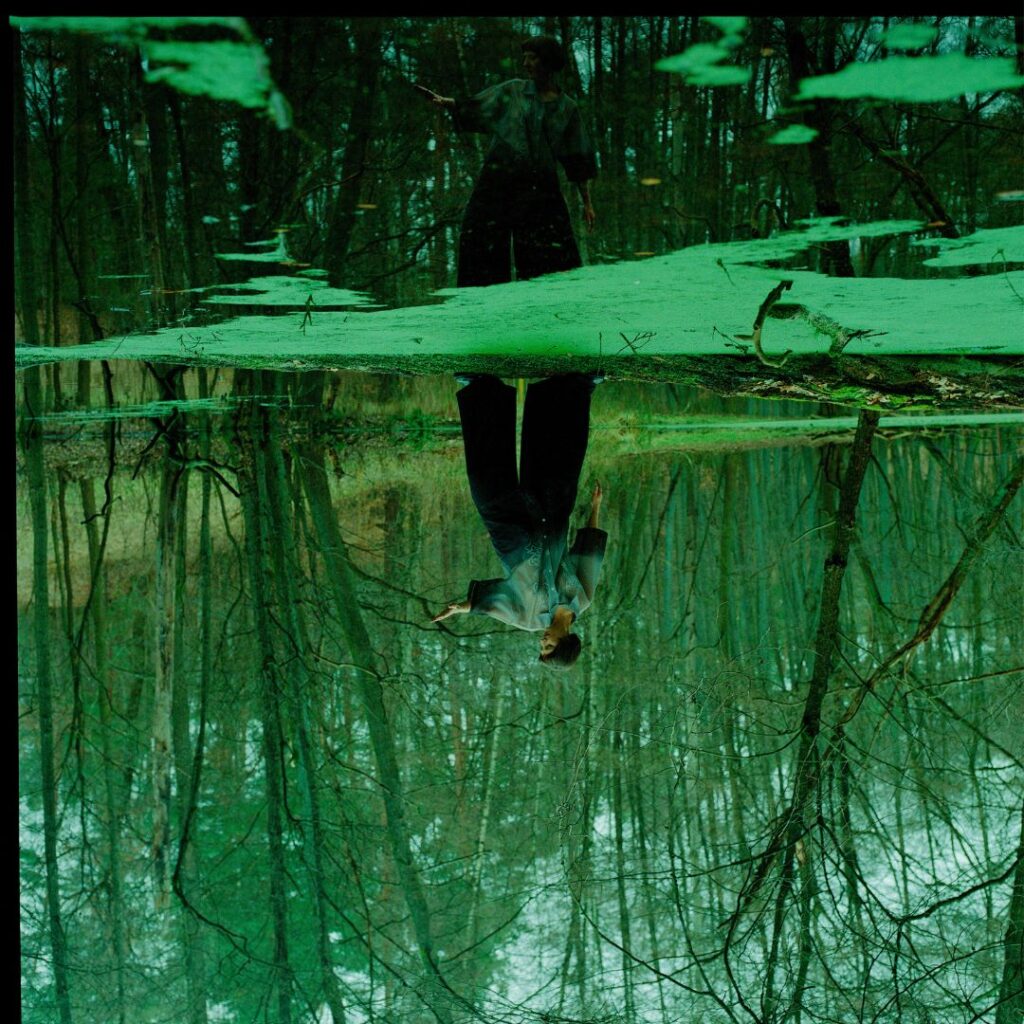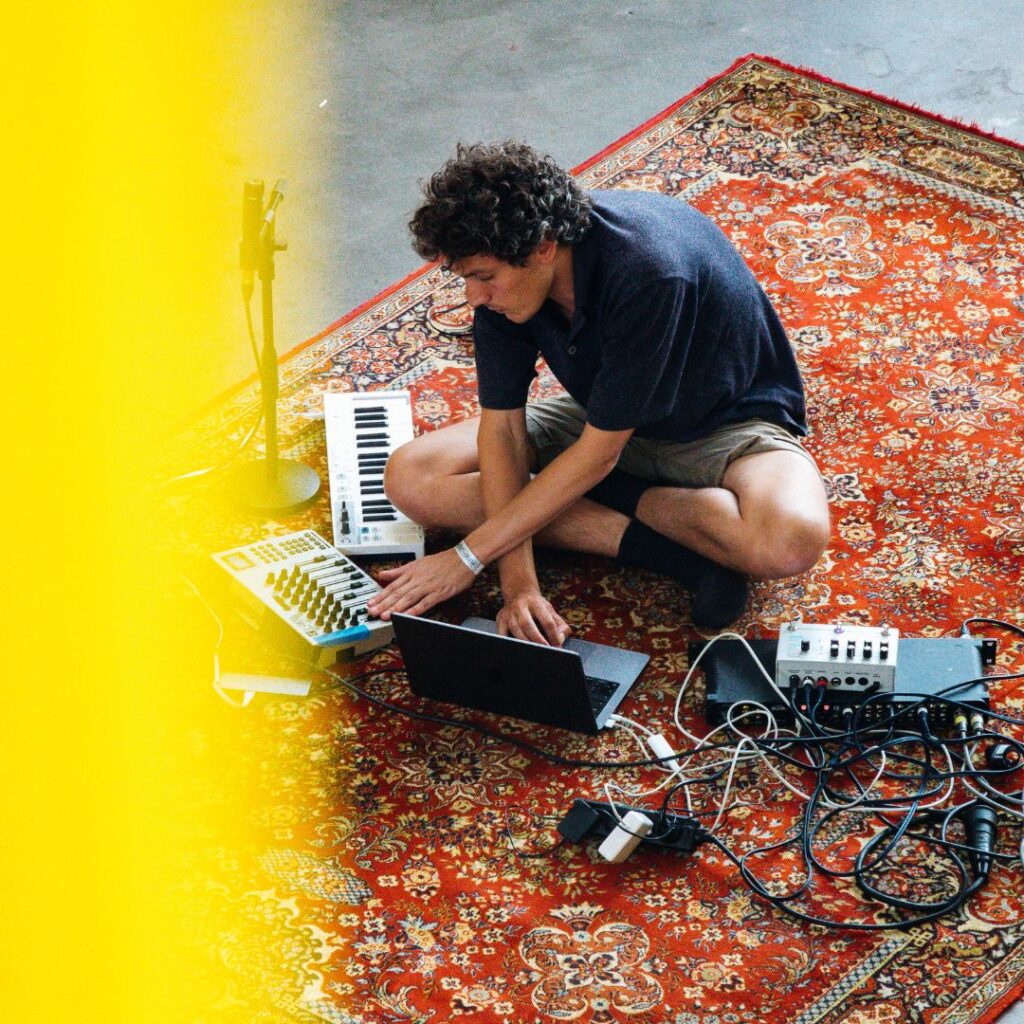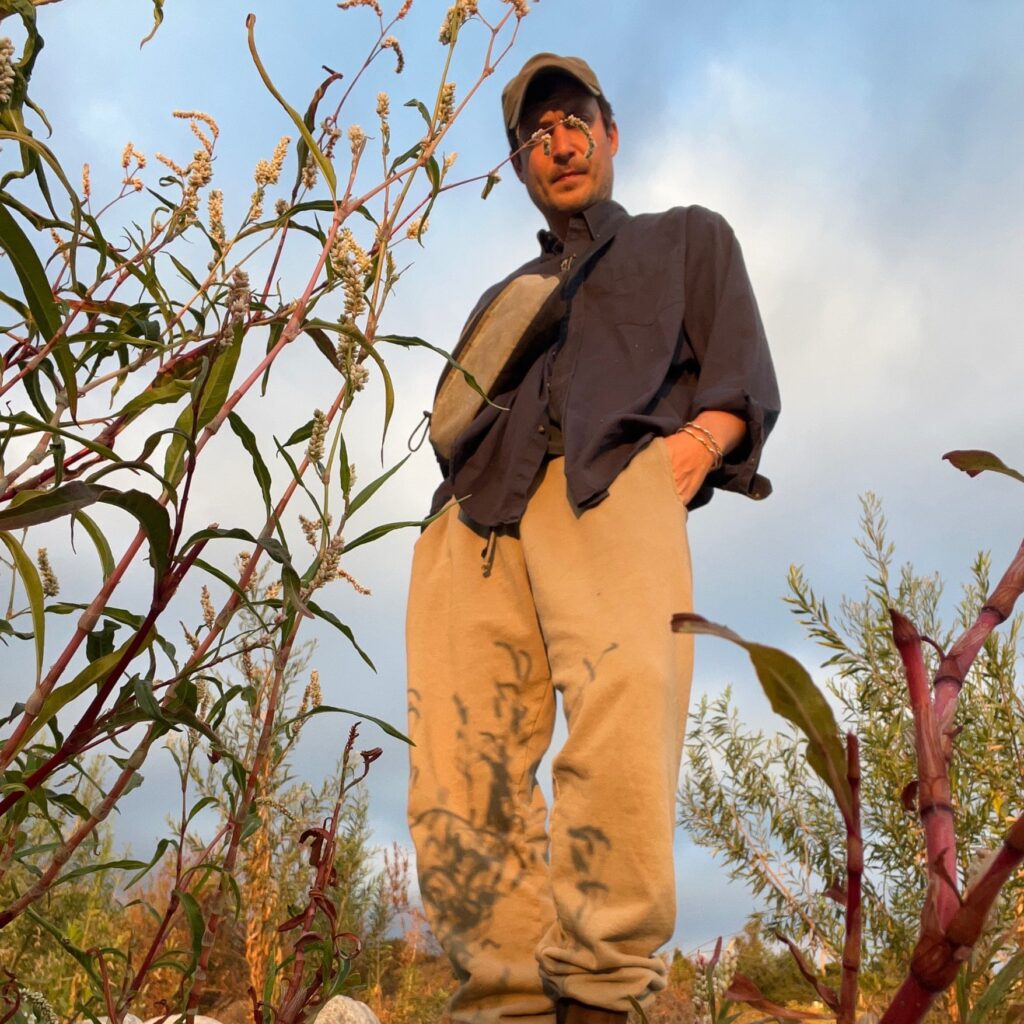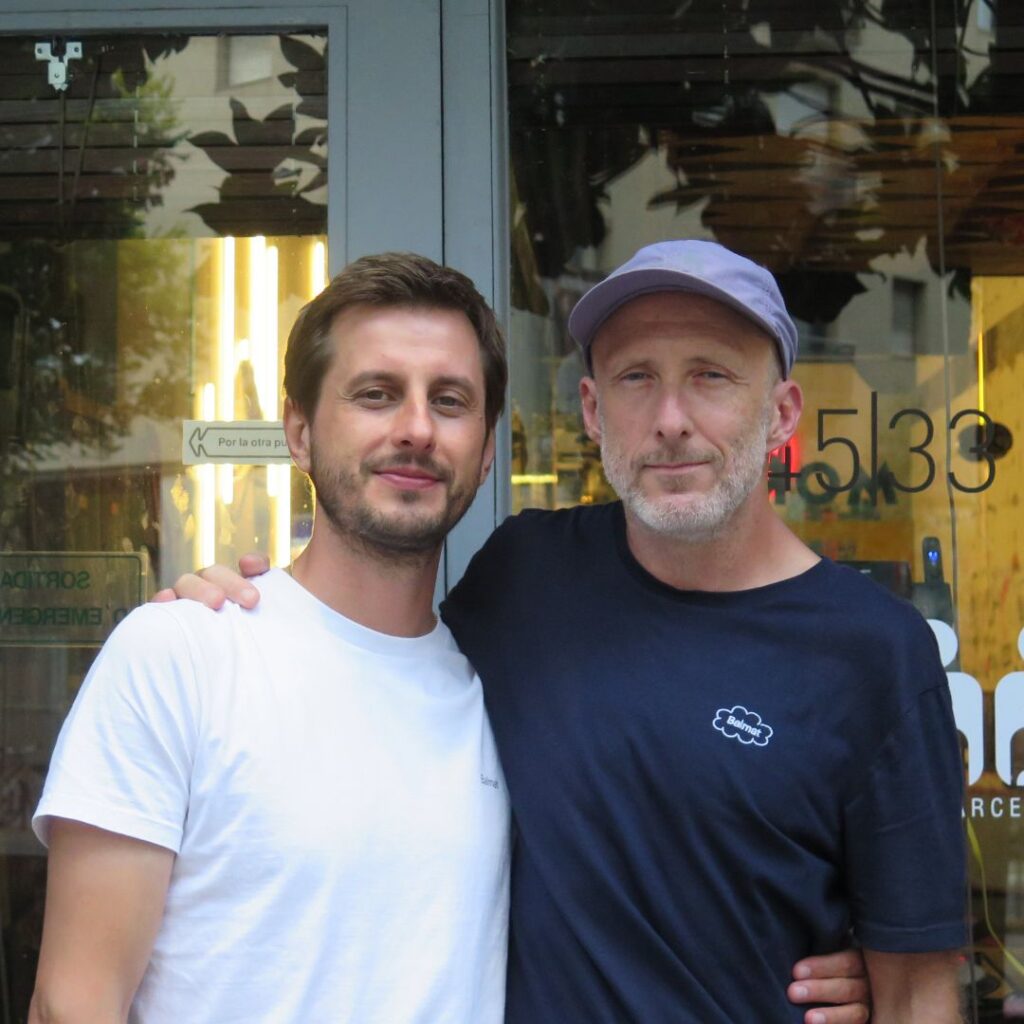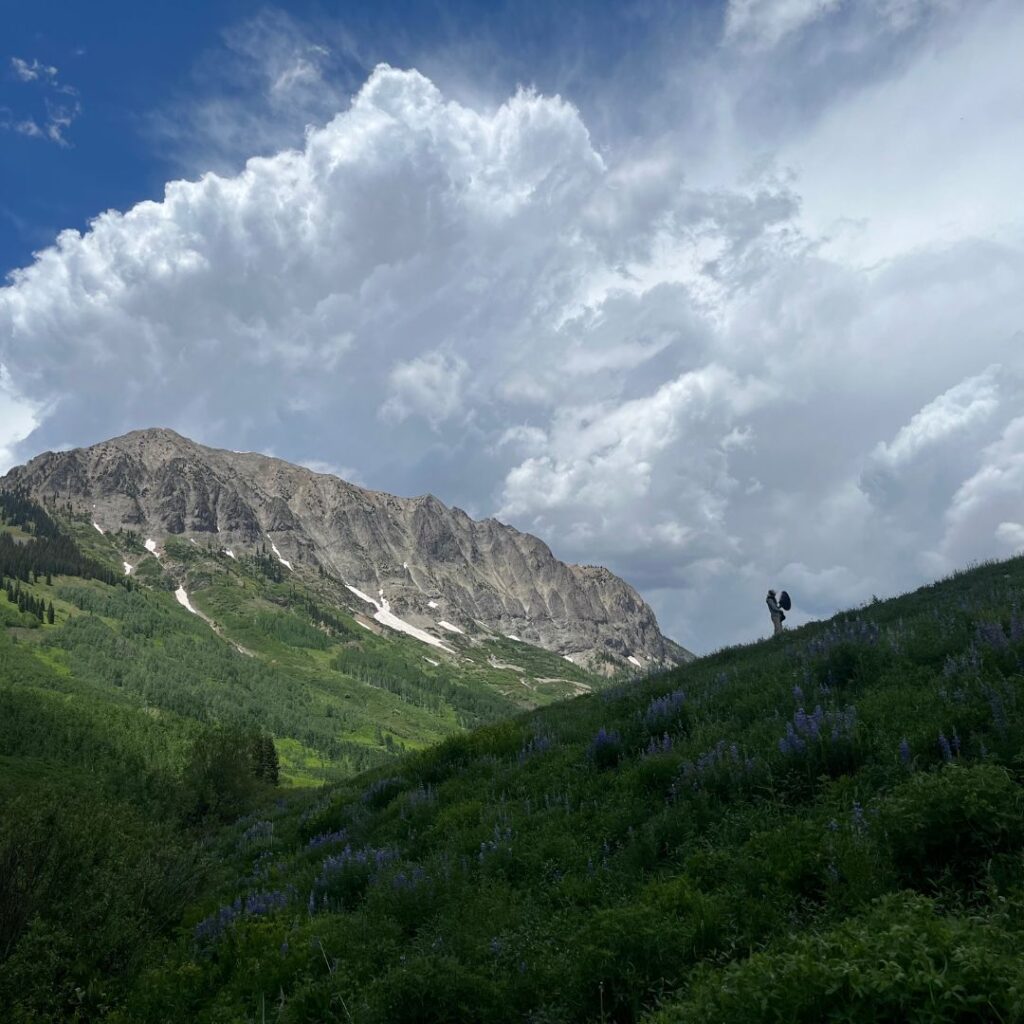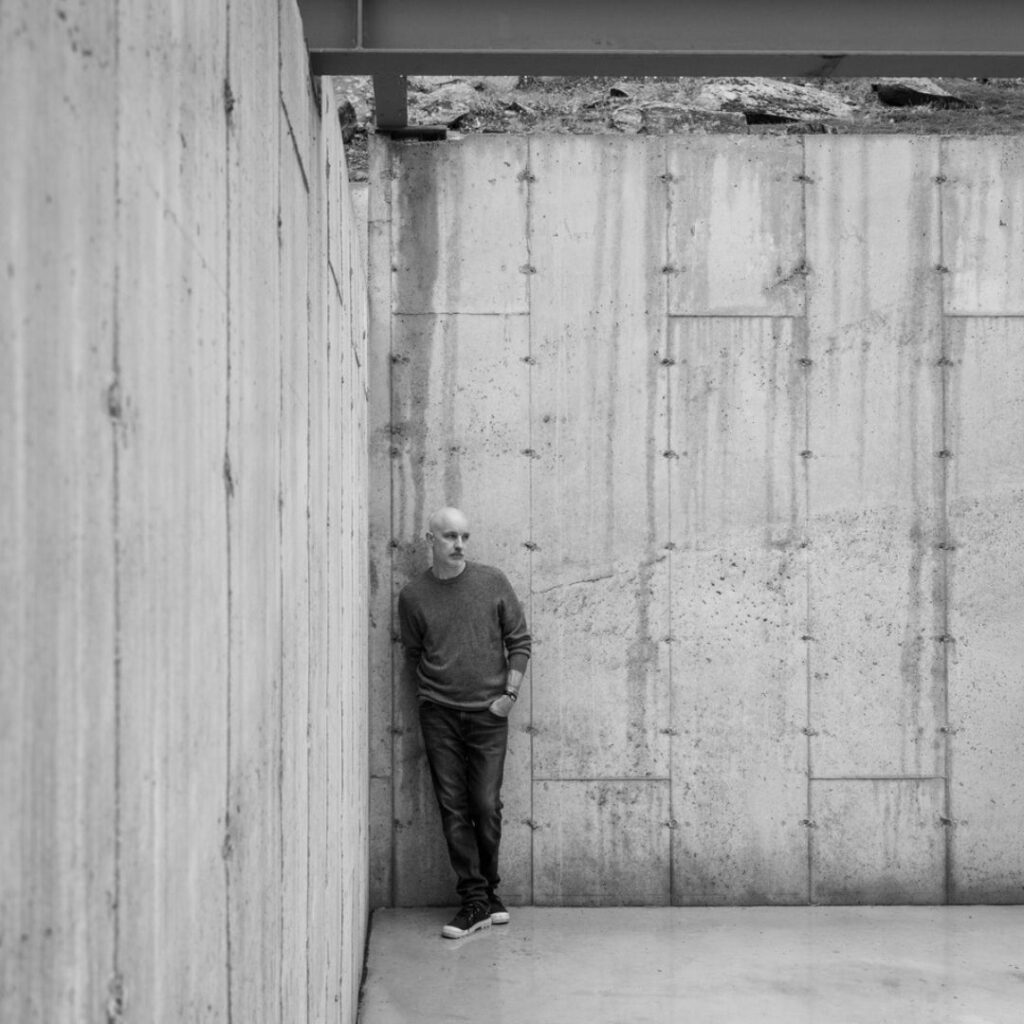removing the scaffolding with rick myers
Behind every semblance of normalcy lies the absurd, and behind every brush with absurdity lies humanity. Through decades of questioning and creating, the Manchester-born, Massachusetts-based Rick Myers has bridged disparate disciplines and posited new frameworks for considering how we approach others and the world.
Recent years have found Rick immersed in his latest body of work, Obstacle Corpus, a conceptual chronology of sorts that finds him blending visual, textual, and sonic practices. We spoke with Rick to learn about his artistic path and the meaningful connections he’s fostered along the way.
As an artist and a writer working across a diverse range of mediums, where did your creative path begin?
I’d say primarily through music, and definitely in some ways through skateboarding. When I was growing up, my friends were in bands, and I also played music, but while they focused more on the musical side, I went more in the visual direction, making artwork and experimenting with photocopiers. Eventually I started making record sleeves for friends, which led to me doing record covers for people for a long time.
There’s a deeper impetus around my mum passing when I was young and her sharing her art therapy, cell-based drawings with me when I must’ve been 7 or 8 years old. I remember knowing that the drawings held a lot of hope at the time. I ended up with a small Hundertwasser Regentag catalogue that was hers. The scale, intensity of the colors, and especially the indexical details in the artwork were all really compelling to me.
Thank you for sharing this story about your mom. It’s really special that you drew consolation and creative inspiration from her art. Did growing up in Manchester also play a part in your creativity?
Thanks, yes, the art therapy she was doing definitely made sense to me.
Manchester’s a small city really, so I crossed paths with a lot of people who were sharing interests. There was a really strong, natural energy, which was also still connected to the generation or two before us, so things felt really close-knit.
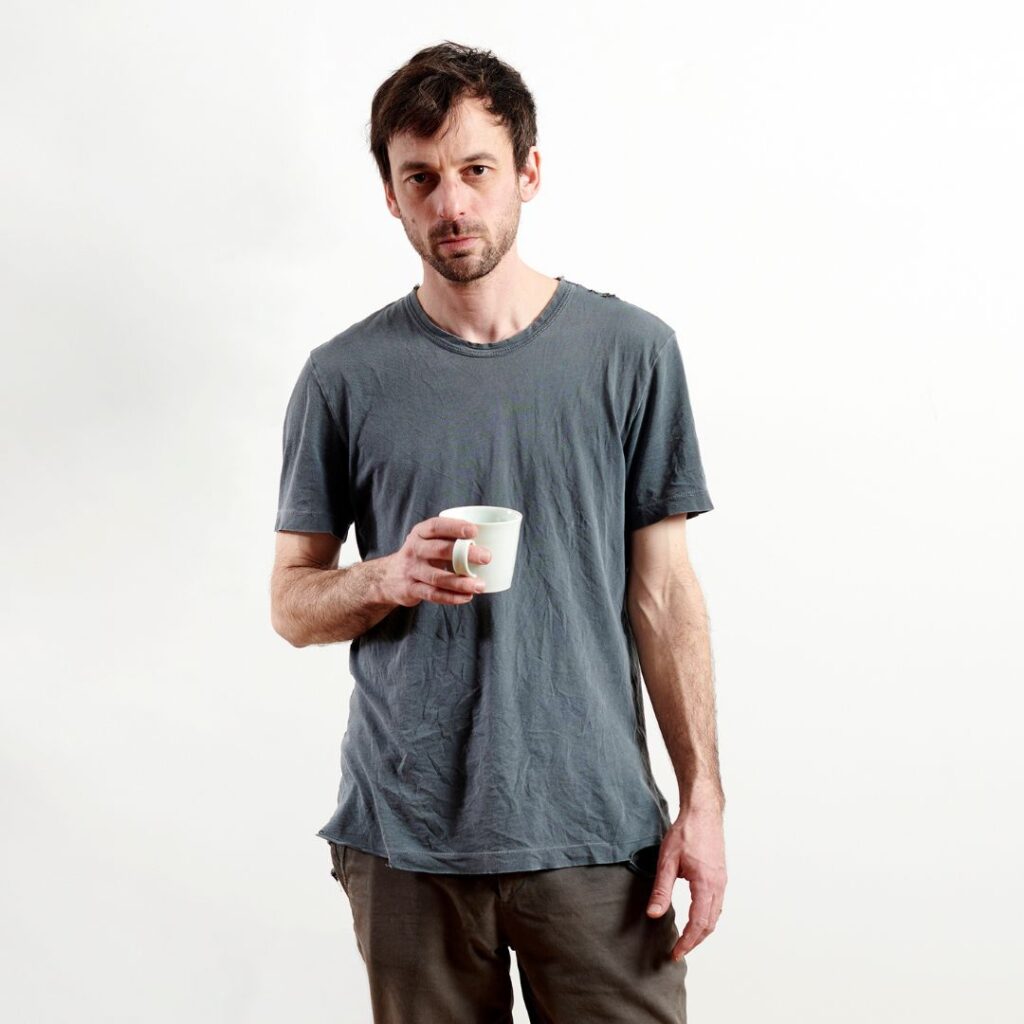
Are there any characteristics that are connected to Manchester that have influenced your work later on or any particular elements?
I think mostly a kind of belief system based around resourcefulness, which was always just a very natural approach without necessarily referring to the term DIY—just a very instinctive way of working within constraints.
Is it weird to have other people try to describe you in different frameworks or terms within art?
People are so overwhelmed, and we’ve never been more oversaturated with output, so I’m flattered if people think about it. Something important for me personally is an overlap of different interests and practices over a long period of time. One that’s become more clear recently is through always having used a turntable and having spent a lot of time figuring out how to cut records.
Oh, you cut records?
Yeah, I grew up doing that a lot, but I wouldn’t have wanted to mention it before now. I’ve been much more focused on writing and text, also through visual and sound poetry in various ways, but recently I’ve been connecting the turntable to the notion of disrupting time and the voice. Also with interruptions to recording and playback mechanisms for the Obstacle 79: Memory is Current LP, and for its sleeve, I made drawings where one hand interrupts the other. I spent a lot of time in the past cutting up other people’s voices using a turntable, so I felt that I should do so with my own voice now that I have this record which tells a story of time and recording becoming dislodged. It feels like this ongoing series of reference points; I’ve threaded together a lot of my life in a way that I didn’t anticipate.
Can you share a bit more about the ongoing series, Obstacle Corpus?
For 15 years or so, I’ve been making these bodies of work that often end up as a book or a zine, or some type of interdisciplinary piece with a lot of components that are eventually encapsulated. I was considering how I could still make pieces that were sequenced, but not contained. It formed into this current body of work called Obstacle Corpus, based around generative systems.
What is the starting point for these projects that are so layered?
The projects before were always grounded in some way with a source, often a narrative, or a subject matter that was research-driven. This kind of impetus often wasn’t the most essential point of the work though. I was interested in poetics that would emerge from connections between research and related artworks, with the starting points functioning more like scaffolding that also embeds itself in the work. With Obstacle Corpus the idea was to remove this, or it be more skeletal.
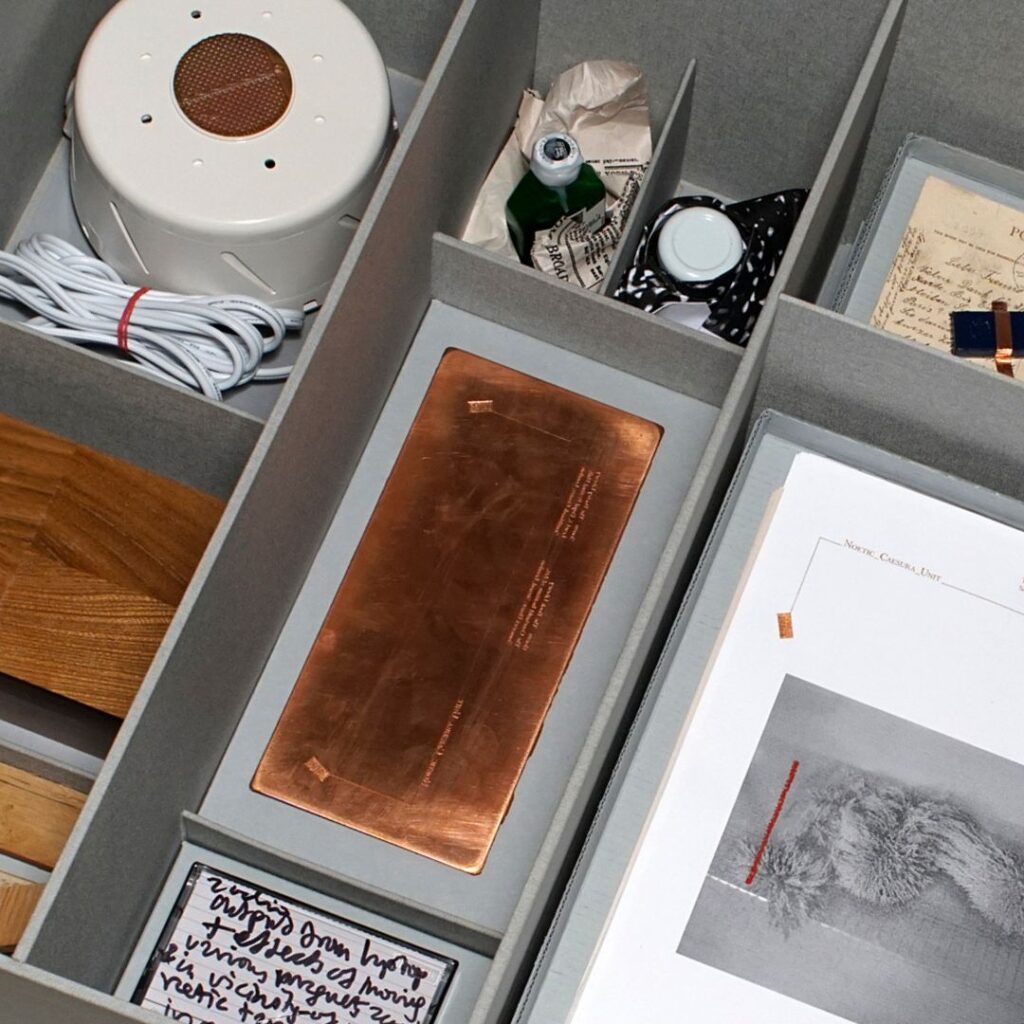
How do you find ideas for the works? What does the research process and discovery look like for you?
It’s through what I’m interested in naturally, often how we relate to technologies, and their histories in relation to where things are up to now. Having always used and disrupted photocopiers in various ways, a recent example was while researching antiquated patents for xerography, I found descriptions of images being formed in a powder cloud. That’s fascinating and beautiful to me and still feels current.
It seems there’s this theme of disrupting systems.
Yeah. And I think that translates through an early focus on skateboarding, as well. I mean, you look around at the architecture and you view it differently. That’s just a natural thing. It’s not deliberate. It’s just not subscribing to assumptions about things by default. Not to get too grandiose, but I think that extends to language and to life. It’s about not making assumptions about things or people.
What are some of your interactions as an artist that have shaped your approach or way of thinking?
I made a print series by smashing a 100-year-old light bulb in a steelworks. Initially I phoned around companies, describing the project, seeing if I could use a steel tooling press to crush this light bulb, and people were like, “Yeah, I’m kind of busy right now.” I get it, I’m literally phoning you to waste your time, but after two or three calls I reached the owner of a steelworks on the phone who said, “My father recently passed away, and I have this set of rubber stamps in front of me on the desk. It’s a small printing kit that was his, it means a lot to me, and this idea makes me think about it.” Following the project he ended up bringing his son to visit my studio. It’s really a highlight of what I’ve been working on, through the projects, just getting myself into these situations and conversations that I would never have otherwise been in.
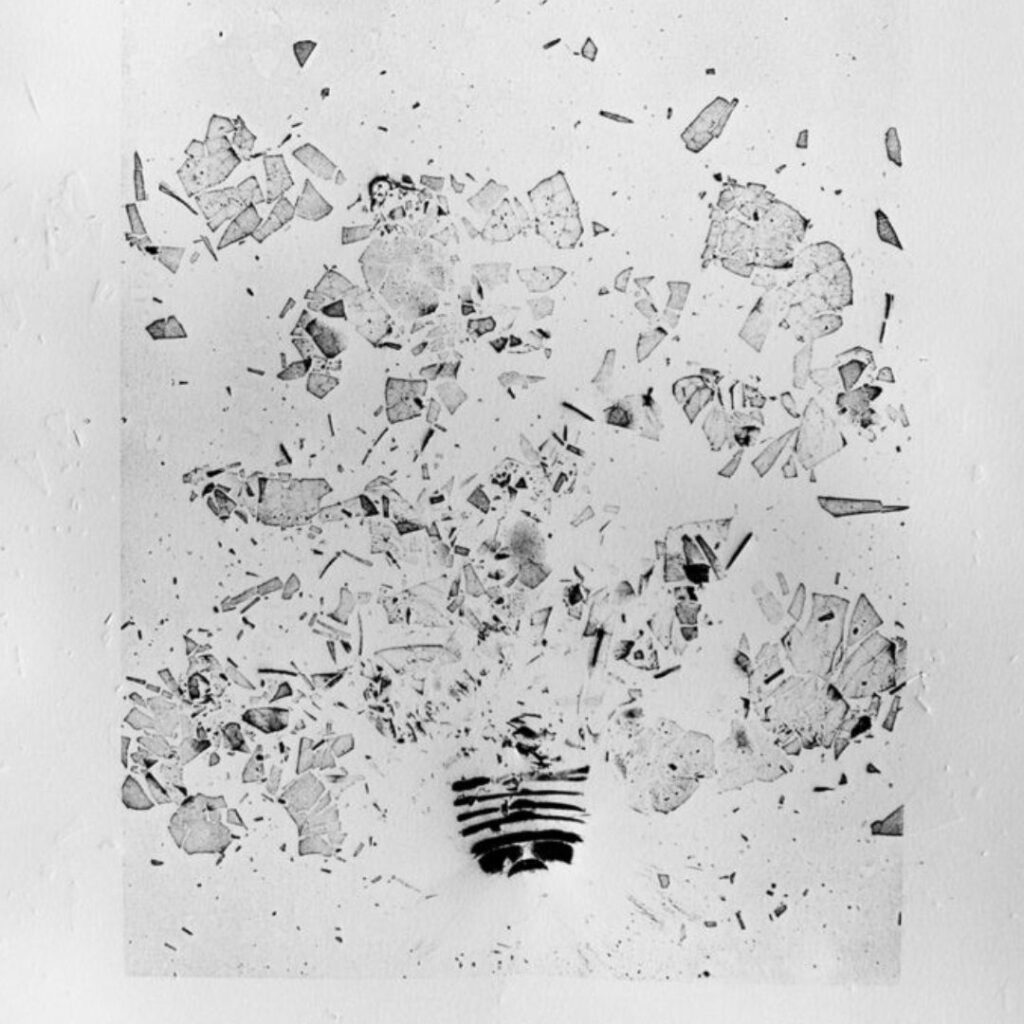
You go in thinking you’re wasting people’s time and instead, these connections and relations that you could never have imagined form.
Yeah, it’s really incredible. And not in this kind of, “Oh, we’re interested in the same stuff” sort of way. We’re interested in very different things, but finding where we do connect, and that happens to be in loads of ways.
With the player piano recording which happened in the metalwork company building near me, I’d been looking for a player piano I could use for a long time, and I’d been to the same metalwork company before, but when I went back to ask about something connected to the same body of work, in the meantime they had found a player piano and set it up in the hallway.
They let me use it to record Obstacle 79: Memory Is Current. I was putting my voice through the piano strings and amplifying it throughout the building at the same time they were working. They were pretty intense sounds and definitely not the type of music most people would go out of their way to hear, but they were really open to me being there and really supportive of it.
It’s a similar situation to the bulb project, around relationships with people who are really generous and presumably not predisposed to the kind of artwork that I’m making, but welcomed me into their space anyway.
That’s really wonderful to think about – bridging the worlds and finding common ground.
Absolutely. These connections seem really nuanced most of the time, but having these meaningful connections with people through the projects has been really worthwhile.

